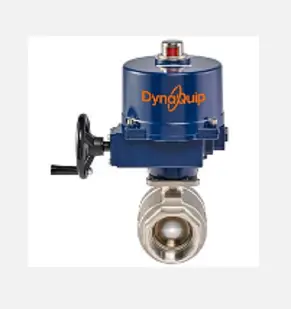An electric ball valve is a vital component in many industrial and commercial applications, providing precise control over fluid flow with minimal manual intervention. These valves are powered by an electric actuator, which rotates the ball within the valve to open or close the flow passage. By integrating an electric ball valve into your system, you can significantly enhance efficiency, reduce operational costs, and improve overall performance. Here’s how to maximize efficiency with an electric ball valve.
Precision Control
One of the primary advantages of using an electric ball valve is its ability to provide precise flow control. The electric actuator allows for accurate positioning of the valve, ensuring that the desired flow rate is consistently maintained. This precision is crucial in applications where exact flow measurements are necessary, such as in chemical processing or water treatment.
Automation and Remote Operation
Electric ball valves can be easily integrated into automated systems, enabling remote operation and control. This capability reduces the need for manual intervention, thus saving time and labor costs. In addition, automation allows for real-time monitoring and adjustments, ensuring optimal performance and rapid response to changing conditions. By incorporating an electric ball valve into an automated system, you can streamline operations and enhance productivity.
Energy Efficiency
The efficient operation of an electric ball valve contributes to overall energy savings. These valves are designed to provide a tight seal, minimizing leakage and preventing energy loss. The use of electric actuators also ensures that the valve operates smoothly and efficiently, reducing power consumption compared to other actuator types. This energy efficiency translates into lower operational costs and a reduced environmental footprint.
Durability and Reliability
Electric ball valves are known for their durability and long service life. The robust construction and high-quality materials, such as stainless steel, ensure that the valves can withstand harsh operating conditions, including high pressures and temperatures. This reliability minimizes the need for frequent maintenance and replacements, further enhancing efficiency and reducing downtime.
Versatility in Applications
Electric ball valves are versatile and can be used in a wide range of applications. They are suitable for controlling the flow of liquids, gases, and slurries in industries such as oil and gas, pharmaceuticals, food and beverage, and HVAC. This versatility allows for standardized solutions across different systems, simplifying inventory management and maintenance.
Integration with Control Systems
Modern electric ball valves can be easily integrated with advanced control systems, using communication protocols such as Modbus, Profibus, or HART. This integration enables seamless communication between the valve and the control system, facilitating precise control, monitoring, and diagnostics. By leveraging these advanced features, you can maximize the efficiency of your operations and ensure optimal performance.
In conclusion, an electric ball valve is a powerful tool for maximizing efficiency in various industrial and commercial applications. Its precision control, automation capabilities, energy efficiency, durability, versatility, and easy integration with control systems make it an invaluable asset. By incorporating an electric ball valve into your system, you can achieve significant improvements in performance, cost savings, and overall operational efficiency.





